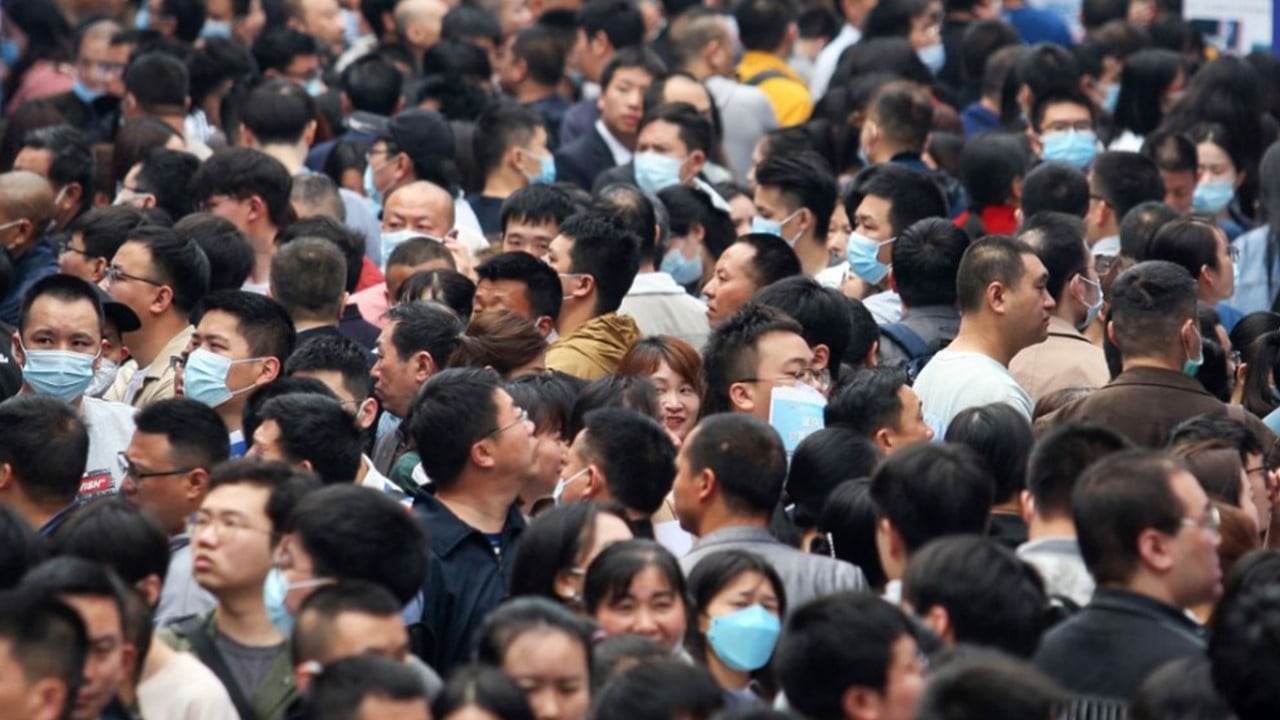
China’s recruiters report drop-off in confidence among companies, jobseekers alike
- Some industries have more vacancies, but others have let workers go as residual uncertainties weaken comeback
- Recruitment agencies have fewer openings for clients, and many aspirants are prepared to take new jobs at similar pay rates – or lower
In another sign that uncertainties over employment continue to weigh down China’s broader economic recovery, recruitment agencies are seeing a drop in confidence among their clients at both ends of the spectrum, with some formerly up-and-coming industries growing conservative about hiring and senior candidates reluctant to change roles.
Beijing has said China’s labour market is “overall stable”, with the surveyed urban jobless rate of 5.2 per cent in August below the government’s 2023 target of 5.5.
“In general, we see less need in the [senior-level] job market. But the situation is different across industries,” said Sean Li, the general manager of recruitment consultancy Robert Walters China.
Several recruitment agencies have reported shrinking revenues as the market for talent loses lustre.
And as China pushes for innovation, there has also been an increase in demand for technicians and production workers, Li added.
Increasing interest in “domestic replacement”, or the development of domestic industry as an alternative to multinationals, is conducive to more hiring. It also aligns with Beijing’s push for improving science and technology self-reliance amid intensifying competition with the United States.
New energy, especially the propulsion and battery subsector, is a stand-out field with a relative trove of senior job opportunities according to Fred Zhu, CEO of recruitment agency Wisest Talent. The market is expected to keep growing as the Chinese government has stated commitments to reach peak carbon emissions by 2030 and net-zero emissions by 2060.
Consumer and luxury goods have also shown resilience, with demand remaining stable and slightly increasing in some cases.
Pinning down the state of the whole job market based on the experiences of recruiters is challenging – they can only provide a specific sample, as most companies only search for senior specialists and managers through agencies.
But those accounts are indicative of broader trends, and job postings in once-promising industries have dropped, especially those within the biotech sector.
Investors are finding they must wait longer to see returns there, and Western countries have made efforts to stop China from recruiting top overseas scientists, putting constraints on hiring capacities.
We [saw] a big drop in needs this year … worse than during the pandemic
Zhu, who focuses on the fields of technology, consumer goods and medical care, remained positive. He said he believes it is in companies’ interest to find top research and development talents to fuel innovation.
He added the shrinking talent market has also affected the performance of recruitment agencies, with revenues down by 30 to 40 per cent for the last two years.
“This year [has been] the most difficult during my more than 20 years in the field,” said the CEO, who asked not to be identified due to the sensitivity of the matter.
“Everyone knows the job market is not that good, so my clients are also adjusting their expectations. They can’t risk losing the opportunity.”
Before the coronavirus pandemic, he said, job-hoppers could usually expect a salary increase of 20 to 30 per cent.
But earlier this year, some clients became angry when new companies offered the same salary as their previous job. More recently, he said over half his clients would “calmly” accept an offer at the same salary, or even lower.
“We [saw] a big drop in needs this year … worse than during the pandemic,” said Zhou Zhicheng, a partner at NSK Consulting.
As the domestic job market slows down, some firms are expanding their footprint in other countries. Companies are now asking agencies to recruit both from overseas directly and in China for their overseas branches.
Zhou’s firm, a small recruitment agency focused on manufacturing and technology, had many candidates seeking career changes in the first half of the year.
But even they had limited opportunities. Now, in the third quarter, there appears to be a consensus that it is not the right time to jump ship and expect a salary increase.



